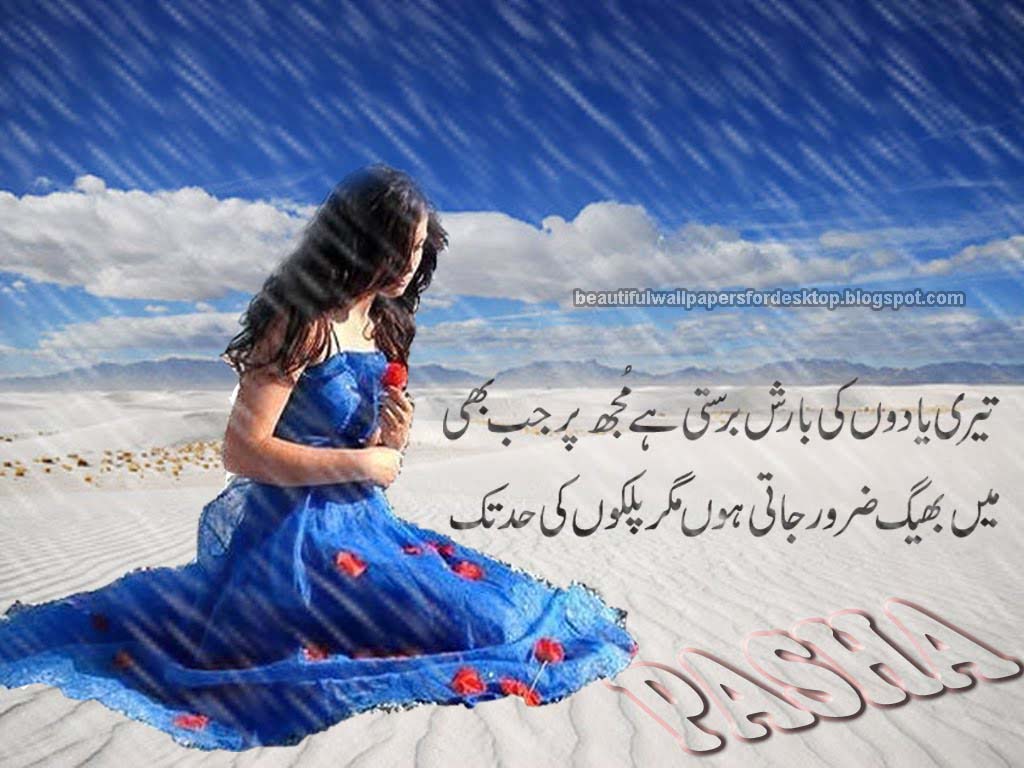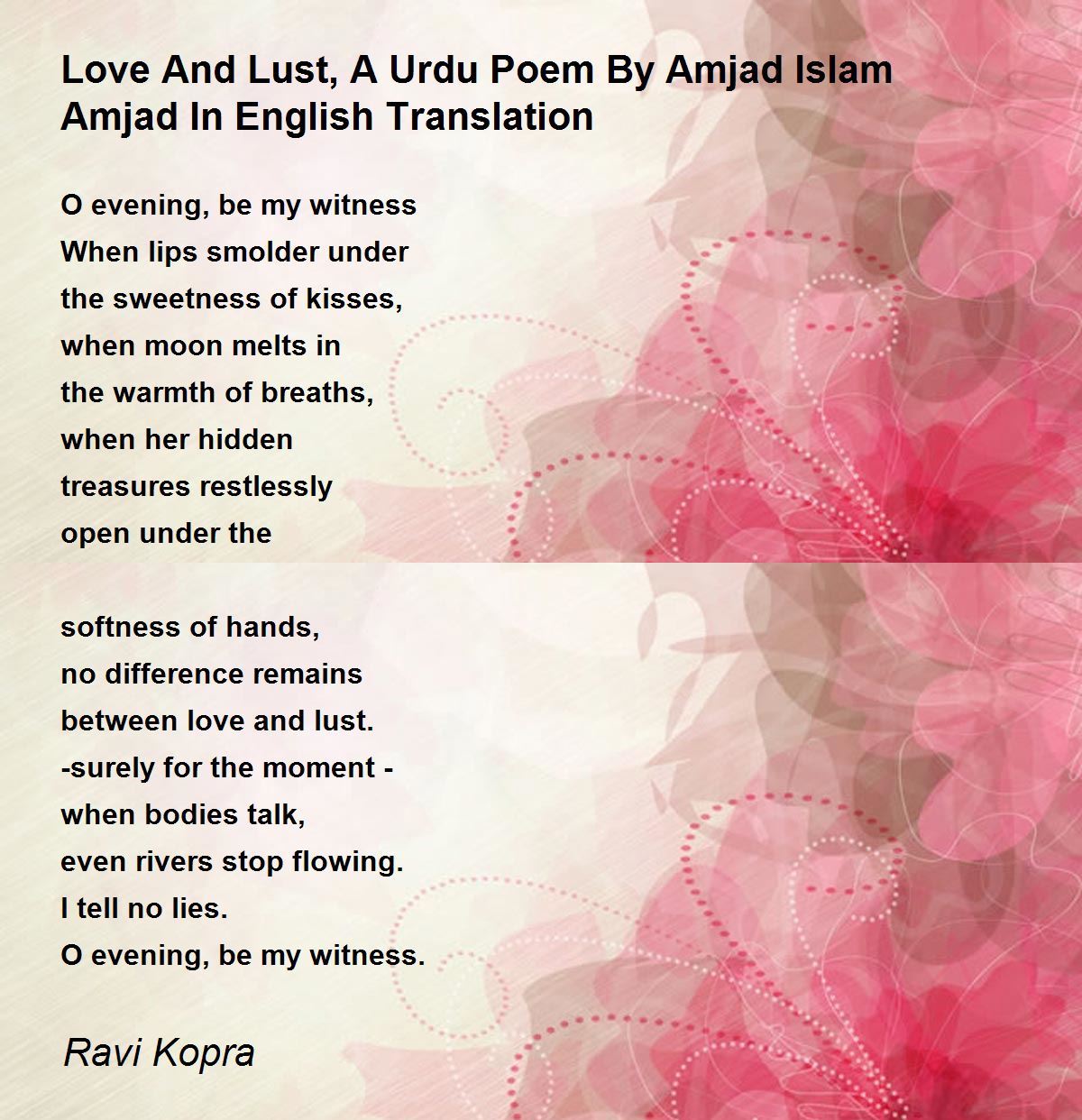


Ruba'i رُباعی, is a poetry style, the Arabic term for " quatrain".It uses the same rhyme system as the ghazal, but is usually longer. Qasidaقصیدہ, usually an ode to a benefactor, a satire, or an account of an event.The other renowned Urdu poets who wrote sonnets were Akhtar Junagarhi, Akhtar Sheerani, Noon Meem Rashid, Zia Fatehabadi, Salaam Machhalishahari and Wazir Agha. Azmatullah Khan (1887–1923) is believed to have introduced this format to Urdu Literature. As a distinct form of Nazm many Urdu poets influenced by English and other European poets took to writing sonnets in the Urdu language. From Nazeer Akbarabadi, Iqbal, Josh, Firaq, Akhtarul Iman to down the line Noon Meem Rashid, Faiz, Ali Sardar Jafri and Kaifi Azmi, Urdu poets have covered common life, philosophical thinking, national issues and the precarious predicament of an individual human being. It can be written on any topic, and so a large number of Nazm exist. Nazm نظم is the basic type of Urdu poetry.Na`at نعت is a poetry that specifically praises the Islamic prophet Muhammad.The Religious Masnavi History of Islam (Tarikh-e-Islam Az Quran) written by Dr Syed Ali Imam Zaidi Gauher Lucknavi. Mir Taqi Mir and Sauda wrote some of this kind. Masnavi مثنوی is a poem written in couplets in bacchic tetrameter with an iambus for last foot.The famous marsia writers who inherited the tradition of Mir Anis among his successive generations are Mir Nawab Ali 'Munis', Dulaha Sahab 'Uruj', Syed Mohammed Mohsin (Jaunpuri), Mustafa Meerza urf Piyare Sahab 'Rasheed', Syed Muhammad Mirza Uns, Ali Nawab 'Qadeem', Syed Sajjad Hussain "Shadeed" Lucknavi, Allama, Dr.Syed Ali Imam Zaidi, "Gauher" Luckhnavi the great-grandson of Mir Babber Ali Anis, Syed Karrar Hyder (Jaunpuri) and Syed Yadullah Haider (son of Syed Karrar Hyder). Each stanza has six lines, with the rhyme scheme AAAABB. Marsiya مرثیہ is an elegy typically composed about the death of Hasan, Husain, or their relatives.Manqabat مُنقبت is a Sufi devotional poem, in praise of Ali ibn Abi Talib, the son-in-law of Muhammad, or of any Sufi saint.The word "hamd" is derived from the Qur'an, its English translation is "Praise". Hamd حمّد is a poem in praise of Allah.The last Sher is called Maqta' (مقطع ), but only if the poet uses his " Takhalus (تخلص )". Each couplet of a ghazal is known as Sher (شعر ). The first line of a ghazal must include a refrain, which is a word or a phrase that can be easily fitted into the other couplets. It is important to think about the topic as well as the theme of a ghazal before starting to write it. It is one of the most difficult forms of poetry as there are many strict parameters that one needs to abide by while writing ghazal. Couplets may or may not have the same thought. There has to be a minimum of five couplets to form a ghazal. Ghazal غزل,s a set of two liner couplets, which strictly should end with the same rhyme and should be within one of the predefined meters of ghazals.Ghazal singing and Qawwali are also important expository forms of Urdu poetry. Mushairas are today held in metropolitan areas worldwide because of the cultural influence of South Asian diaspora. Although its tarannum saaz (singing aspect) has undergone major changes in recent decades, its popularity among the masses remains unaltered. It is fundamentally performative poetry and its recital, sometimes impromptu, is held in Mushairas (poetic expositions). Both the Muslims and Hindus from across the border continue the tradition. However, Urdu poetry is cherished in both the nations. Following the Partition of India in 1947, it found major poets and scholars were divided along the nationalistic lines. All famous writers of Urdu language including Ghalib and Iqbal were given British scholarships. The language of Urdu reached its pinnacle under the British Raj, and it received official status. According to Naseer Turabi there are five major poets of Urdu which are Mir Taqi Mir (d.1810), Mirza Ghalib, Mir Anees, Allama Iqbal and Josh Malihabadi (d.1982). Today, it is an important part of the cultures of South Asia. Urdu poetry ( Urdu: اُردُو شاعرى Urdū S̱ẖāʿirī) is a tradition of poetry and has many different forms.


 0 kommentar(er)
0 kommentar(er)
